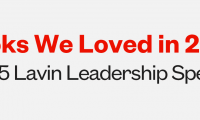Much like the environment on Earth, conditions in space are worsening. Today, 20,000 pieces of debris are threatening the safety of our planet’s orbit. MIT Space Lab Director and Lavin Speaker Danielle Wood is leading the charge on a new Space Sustainability Rating developed to solve the problem.
There is a startling amount of debris circling our planet. Over 20,000 pieces of debris larger than 10 centimeters—including abandoned rocket materials and inactive satellites—are piling up around the Earth’s orbit. Space congestion increases the risk of destructive collisions, threatening the safetey of active spacecrafts. In an effort to manage the growing waste issue, The World Economic Forum is launching the Space Sustainability Rating (SSR). Danielle Wood, Director of MIT’s Space Enabled Research Lab, is leading her team in the project alongside the Eurpean Space Agency (ESA). Much like the LEED certification in the construction industry, the goal of the SSR is to set a global standard for responsible behavior in space.
While there are already regulations in keeping the earth’s orbit clean through organizations like the FCC and the United Nations, the SSR will add another layer of accountability to the process of space travel. “It’s actually encouraging companies to try to beat each other in how good they behave, so they can build their brand,” Wood explained to The Verge.
Wood joined NASA in 2015, and was appointed as Director of MIT’s Space Enabled Lab in 2018. Her work focuses on using space technology to empower, protect, and advance our home planet.
To learn more about developments in space, visit our dedicated Astro speakers page.















